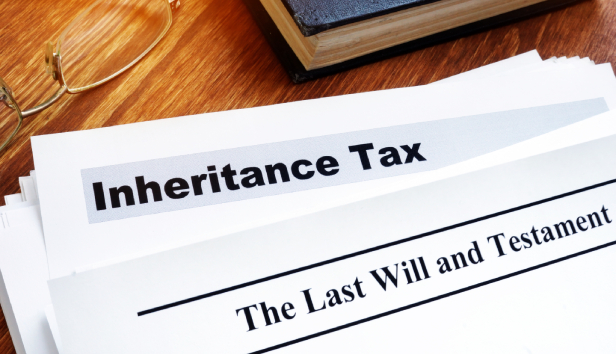Terry, in his early 70s and living in Cambridgeshire, suffers with osteoarthritis and, like many people, didn’t think he was eligible for any financial help.
"I had no idea ...that I might qualify for Attendance Allowance, because as far as I was concerned, I just had arthritis and so do thousands of other people,” he says.
But Terry was able to make a successful claim after speaking to charity Age UK’s Benefits Entitlement Team, after his financial situation became hard to manage.
Attendance Allowance (AA) is also a so-called ‘gateway benefit’ meaning that, if eligible, it could help you unlock more financial support. Terry now receives an extra £13,000 a year in Attendance Allowance, Council Tax support, Housing Benefit and Pension Credit.
It’s estimated that more than 1.1 million pension-age households could be missing out on Attendance Allowance support (according to Policy in Practice, a social policy software and analytics company) adding up to over £5 billion going unclaimed – so it’s worth checking to see if you’re eligible.
Attendance Allowance is a benefit available to anyone of State Pension age who needs extra help with everyday tasks because of a disability or illness.
Caroline Abrahams, Charity Director at Age UK, explains: “Attendance Allowance is a non means-tested benefit, paid out weekly for those who qualify. It’s based on need, not how much savings you have and isn’t taxable.
“Attendance Allowance is there to fund some of the extra costs that come along if you are an older person living with disability.
“For example, if you are successful in your claim, you could use Attendance Allowance to help with the extra costs of heating that many disabled people face or meet the cost of a taxi to take you to a hospital appointment, or to visit a friend.”
You don’t need to have a carer to qualify, and you can spend the money on equipment or services to help you stay independent – or, of course, a carer if that’s something you feel would help.
You can apply for Attendance Allowance if you have a condition that affects your ability to care for yourself. This includes getting dressed, eating and drinking or using the toilet.
Your condition doesn’t have to be physical or visible – it could be a mental health condition, learning or sensory difficulty, or needing supervision to keep yourself safe, such as suffering from memory loss.
To qualify, you must have needed care or supervision for at least six months before you can make a claim and, importantly, if you’re still undergoing tests, you don’t need a diagnosis to apply for AA.
If you might have no more than 12 months to live, you’ll be able to apply for Attendance Allowance instantly (removing the need to wait six months).
There are two rates available. The lower rate of £72.65 applies if you need help either during the day or night, while the higher rate of £108.55 applies if you need help during both the day and the night. If your illness means you have no more than 12 months to live, you’ll automatically qualify for the higher rate.
However, the financial support doesn’t just stop at receiving Attendance Allowance. Qualifying for the benefit can also mean you’re entitled to more support or an increase in the help you’re already getting, including Council Tax Reduction, Pension Credit and Housing Benefit.
You’ll need to fill in an application form, which you can get by calling the AA helpline on 0800 731 0122 (textphone 0800 731 0317).
.jpg?sc=max&mw=800&h=450&la=en&h=731&w=1300&hash=83A61F09D89D4A49C9595E3E3F267ED5)
Asking for a form by phone means your claim starts from that point, so any money you’re entitled to will be backdated (as long as it’s sent to the Department for Work and Pensions (DWP) within six weeks).
You can also download an application form from GOV.UK but your claim won’t start until the DWP receives the document. A friend or family member can help you with the form, as long as you can sign it.
If you’re helping someone complete a form and they can’t sign it themselves, you’ll need the legal right to apply for them. You can do this through power of attorney, becoming their appointee or deputy.
When you’ve submitted your form, the DWP will let you know within three weeks roughly how long you’ll need to wait for a decision.
If you might only have 12 months to live, your application is fast-tracked, but you’ll need to ask your doctor or medical professional to fill in an SR1 form.
If you don’t agree with the DWP’s decision, you can challenge it by asking for a mandatory reconsideration. You can find a step-by-step guide to this at GOV.UK.
While long, running to 30 pages, the form you’ll need to complete is relatively simple and there’s lots of help available from dedicated information centres if you’ve got any questions.
The UK Government runs an Attendance Allowance helpline, or you can speak to organisations like Citizens Advice, Age UK or Benefits Answers for dedicated help with the form.
Attendance Allowance is based on needs, so if those change (or you have to stay in hospital or in a care home for more than 28 days) you must tell the DWP, and your payments will start again when you return home.
If you forget to tell the DWP about any changes, it can affect your benefits or you may need to pay some back, so it’s important to always ask one of the dedicated information centres (listed above) if you’re unsure.
AA isn’t the only benefit older people are missing out on. An Age UK report reveals £2.8 billion-worth of Pension Credit and Housing Benefit also goes unclaimed each year, as well as the potentially billions in Attendance Allowance mentioned previously.
The reasons behind this are varied and Terry admits he was reluctant to claim. “There’s nothing more important to me than self-reliance. And as I’ve got older, that’s got stronger and stronger. I didn’t want to drag anyone else into my problem,” he says.
Many people are also simply not aware of the help they may be entitled to – something the government says it is working on:
“We are constantly working to improve the way we communicate information and are committed to encouraging pensioners to claim Attendance Allowance where they may be entitled,” a DWP spokesperson told Saga Money.
For more information and help with Attendance Allowance, visit Age UK, Benefit Answers, and Citizens Advice.
The Attendance Allowance Helpline can be contacted on the Freephone telephone number 0800 731 0122, or by Textphone: 0800 731 0317, from Monday to Friday, between 8am and 5pm.





.jpg?la=en&h=476&w=1440&hash=837FB8339853DB5FFD43C9EE0EE78EDB)
Discover why it's important to plan for your care costs, how to do it, and who picks up the bill.


.jpg?la=en&h=354&w=616&hash=DF845FE6DE9798B89724CB777DB917B3)

